Sustainability
The United Nations proposes 17 main goals and 169 targets for successful sustainable development. Having been adopted by several of its member states, these recommendations are part of our core principles and play an active role in the projects conceived by our professors and researchers, since contributing to our society is a fundamental basis of the work we carry out.
Industry, innovation, and infrastructure
Our commitment to our community is also present in the infrastructure we provide to our students and faculty. In order to stimulate high-level research and its results, our Institute aligns theory and practice, offering the proper space for developing projects that will contribute to developing an integrated society. With the aid of public-private partnerships, we have the leading Latin American laboratory complex and cutting-edge innovative technology, for an optimized academic and social performance of our programs. With this cooperation, we increasingly consolidate the projects we develop into the job market.
Affordable and clean energy
Among our 13 programs, the Energy Planning program encourages cross-sectional studies in our subjects that highlight the political, social, economic, and environmental aspects of generating and consuming energy, thus promoting its sustainable development. Our program also has a remarkable reputation through its work on climate change, with the avid participation of our students and professors in the reports of the Intergovernmental Panel on Climate Change (IPCC) of the United Nations (UN).
As such, the studies we carry out in our Ocean Engineering department also contribute to energy sustainability, exploring the ocean as a clean and renewable source. With our Laboratory of Subsea Technology, we conceived and designed the first Latin American wave power plant, which converted sea movement into electrical power.
At the same time, our Electrical Engineering program has developed the POF Lux project – in reference to the acronym Plastic Optical Fibers – which takes advantage of solar energy by up to 80% for lighting environments.
Sustainable cities and communities
Considered by the Brazilian government as the best initiative submitted to the Ministry of Cities, the Iguaçu Project was fundamental for the development of the Baixada Fluminense region in Rio de Janeiro. Urged by the flood that killed thousands and spread leptospirosis in this same region in 1988, the project reproduces water flow in overflowing rivers with accurate data.
Unlike the standard model used in other countries, which analyzes flood sites as a simple accumulation basin (water overflows, accumulates, and subsequently returns to the river bed), our model views this area as a basin under a dynamic flow regime, which simulates what actually happens during floods. This technique allows for developing long-term, more efficient, and cost-effective solutions.
This project has already shown tangible results for those who visit the Rio de Janeiro region. Due to emergency drainage of the main rivers, there were no major floods in recent summers. Thus, its residents have already recovered their economic power, making it possible to invest in improvements to their homes and in their own businesses, such as grocery stores and bars, which, in the end, generate financial returns.
Another initiative at Coppe that demonstrates the potential to contribute to a more integrated city is our Maglev. One of the biggest and most difficult challenges in urban centers and metropolises is urban mobility. Many powers around the world are working to create effective and non-polluting public transport, in a way that its construction and operation are cost-competitive, but an answer has already been found at Coppe/UFRJ and is currently at the prototype stage. The proposal of the Maglev-Cobra technology is a magnetic levitation vehicle with multiple small couplers, allowing for 50-meter radius railway curves and for overcoming 10%-grade slopes and reaching up to 70 km/h of speed. When its small couplers are interconnected, the vehicle resembles a snake (which is where the name “Cobra” stems from).
Still in regards to mobility, part of the project aims to expand and encourage active mobility in the living laboratory at the Cidade Universitária campus of UFRJ, for example, through the Coppe/UFRJ shared bicycle initiative, which offers a free transportation method that assists moving around the campus. Its users can release a bicycle through the IntegraUFRJ mobile application and return it to one of the stops close to their destination, without the need for specific stations.
Another one of our projects for the sustainable development of our community is the Literacy for Youth, Adults and the Elderly project, which encourages workers and service providers at UFRJ and the population at the Ilha do Fundão neighborhood who, due to a series of factors, were unable to complete or even begin their learning process to resume their studies. Focusing primarily on literacy, the course lasts an average of one year and covers abilities such as comprehension and reading fluency in addition to the basic literacy process. In the meantime, its students are trained and encouraged to take the Brazilian Certification Exam for Youth and Adult Competencies (Encceja), which assesses the knowledge, skills, and competencies of young people and adults who did not graduate from Elementary or High School at the expected age.
Actions on global climate change
Located at Coppe/UFRJ and founded in 2009 by Professor Suzana Kahn Ribeiro, the Brazilian Panel on Climate Change (PBMC) brings together 250 experts from research centers and academic institutions across the entire Brazilian territory.
Following the standards of the UN’s International Panel on Climate Change (IPCC), the PBCM produces recurring reports for monitoring the development of scientific knowledge on global climate variability. Therefore, it is a tool actively in tune with the scientific community, helping compile data on the subject and developing the discussions on the matter, which ultimately contributes to reaching a consensus and guarantees greater credibility to our conclusions.
“The role of the PBMC is to provide scientific support to the bodies in charge of formulating policies and making decisions”, explains Suzana Kahn.
